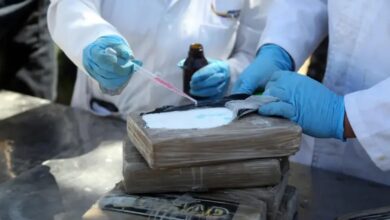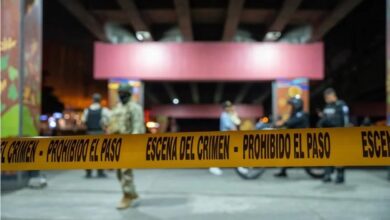The New Drug Policy in the World: the Change Proposed by Colombia
Both Gustavo Petro and Rodolfo Hernández, candidates for the Presidency of Colombia, consider the legalization or regulation of drugs as the best option. What do they propose in terms of drug policy to make this a new reality in the world?.

Photo: Reuters
LatinAmerican Post | Christopher Ramírez Hernández
Listen to this article
Leer en español: La nueva política de drogas en el mundo: el cambio que propone Colombia
Drug trafficking has been Colombia's greatest scourge for at least 40 years. With names like Pablo Escobar, the Rodríguez Orejuela brothers, as well as their respective cartels (Medellin and Cali), the 'coffee-producing' country became famous in the world, precisely because of the drug business.
According to the United Nations Office on Drugs and Crime (UNODC), in 2020 more than a thousand tons of pure cocaine were produced in Colombia, a figure that compared to 2019, when there were 936 thousand, represents an increase of 8% in the production of this narcotic.
Thus, it seems that the more you fight against this business, the more “professionals” the criminals in charge of it become; which translates into higher production over time.
"Drug trafficking criminals have always sought their professionalization, they have been adopting many of their practices to try to increase productivity," said the president of Colombia, Iván Duque, in June 2021, in what was considered, by part of public opinion, as a declaration of conformity and defeat by the Government towards the fight against drugs in the country.
Goodbye to the fight against drug trafficking?
Faced with this reality, it seems that Colombia will make a decision with which to make a 180-degree turn in the war against drugs: legalization or regulation. On June 19, Colombians will go to the polls to elect their new president: the candidate of the Historical Pact, Gustavo Petro, or the former mayor of Bucaramanga, Rodolfo Hernández.
Although both candidates have shown radical differences in their proposals and positions regarding national and international issues, the truth is that the fight against drugs is a situation in which both do not want to delve further.
For example, Petro in his government program has several sections in which he talks about drug trafficking and the need to "move from the failed war on drugs to a comprehensive process of replacing economies and lands ", taking into account that "the Prohibition's approach in dealing with the global drug problem imposed war on Colombia around the illegal economies of coca, poppy, and cannabis.
“This war has failed and the country needs to move towards a new paradigm that brings together the global and Latin American will towards a concerted international agenda based on human rights and the construction of peace, the economic transformation of the producing environments without criminalizing growers, the protection of nature, regulation, the judicial submission of criminal organizations and the approach to consumption as a public health issue”, is what is indicated in your document.
For his part, Rodolfo Hernández not only plans to legalize the use of the drug but has even contemplated giving it away in order to, as he explained to the Colombian media, “end the demand” in the country.
“If we give drug addicts free drugs, be it intravenous, aspirated or oral, the demand is over. Nobody buys again. If they don't buy it because it's given to them for free, the offer is over and the drug is over. It's the only way," Hernandez explained.
For the Engineer (as Hernández is known in Colombia), addicted people should be considered patients whose rehabilitation treatment should be provided and accompanied by the State itself. For this reason, in his government plan, he contemplates "developing a census of addicts to hallucinogenic substances", in order to "change the focus on treatment and create care centers for addicts".
“In these centers, with the accompaniment of expert professionals and comprehensive care, controlled procedures of psychoactive substances will be applied to addicted people, thereby avoiding the condition of indigence and the risks they run when trying to get their doses in the so-called 'pots'”, explains the 77-year-old politician.
In this way, according to the official document of his campaign, it will be possible to snatch "drug consumers and business mafias."
It may interest you: Is It Convenient to Regulate Drugs?
What Does the United States Think of This?
With the Democrats in power, it seems that the United States, one of the most representative countries in the fight against drug trafficking, is gradually giving in to its legalization.
It should be remembered that although there is still no national law decriminalizing drugs in the country, at least three-quarters of the states have already legalized marijuana as a drug for medicinal use, while a third of the United States territories have done so the same with this drug for recreational purposes. In addition, since 2020 some states have approved the use of slightly “harder” drugs, as is the case of Oregon, which decriminalized the use of substances such as methamphetamine, heroin, and even the “Colombian product”: cocaine.
Thus, little by little, the United States begins to give in to the idea of going from war to regulation, taking into account that positive results have already been seen in terms of marijuana. According to the Drug Enforcement Administration (DEA), in recent years trafficking from Mexico has decreased by 58%, going from 227 thousand kilos seized in 2020 to 96 thousand kilos in 2021 and 22 thousand kilos so far in 2022.
Even with this, the US government has decided not to give in completely in the fight against drugs, so it will continue to support Colombia, at least in the war against illicit crops in that country. A few days ago it became known that they will even have drones to counteract this reality.
"Eradication operations in the country are extremely dangerous. The US wants to strengthen the capacity of the Police to improve eradication rates and minimize the risk to personnel on the ground," officials from the United States said.





